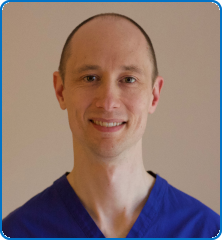Pregnancy Scans
Ultrasound scans are very important during your pregnancy and can tell us a lot of information about your baby. Ultrasound is used to check that your baby is growing and developing as expected. Having a scan can be very exciting; if everything is OK you get to see your baby! But it’s not just for fun it is a medical screening test.
Please note: "NBT is no longer able to accept cash payments. We continue to accept all bank and credit cards.
If you have a specific reason why you are unable to pay via a card, then please let the Antenatal Team know at your appointment so that alternative arrangements can be made.
We apologise for any inconvenience. "
What is an ultrasound scan?
Scans are performed by specially trained staff in ultrasound known as sonographers. The sonographer usually puts some gel on your tummy and moves a small, hand-held probe (a transducer) over your skin to get views of your baby. High frequency sound waves are used to transmit images of your baby onto a computer screen.
Why can it be difficult to scan some women with a raised BMI?
The sonographer likes to be able to see all of your baby’s organs and physical structure. Scanning the unborn baby of a woman with a BMI over 25 can be more difficult as some of the power of the ultrasound waves can be absorbed by the mother’s tummy before they reach the baby. The quality of these images may therefore be poor and so the sonographer has a reduced ability to detect problems and there is a greater chance that an abnormality can be missed. This means that not all abnormalities may be seen by scanning, especially at the 20 weeks scan.
Additional scans may also be necessary later on in your pregnancy to check your baby’s growth or position as increased fatty tissue can reduce the ability to see that the baby is growing as expected.
We understand that some patients may find it difficult or embarrassing to talk about their weight. Please be reassured that all health professionals will be sensitive towards you and your own situation.
How is the ultrasound scan done?
The first scan is usually best performed with a comfortably full bladder but the anomaly and any scans afterwards would you’re your bladder to be empty but the sonographer may need to press on your tummy to get the best views of the baby. Sometimes the sonographer will have to apply a firm pressure in order to improve the quality of the ultrasound beam to be able to visualise our baby clearly. This may be more so when there is excess tummy fat. If you find this uncomfortable, let the sonographer know.
The quality of the image produced will also affect the quality of any photos of our baby which you want to purchase. Therefore please bear this in mind if you choose to purchase any scan photos of your baby.
When can I find out the sex of my baby?
We are unable to tell the baby’s gender at the dating (first) scan. However, if you wish to know your baby’s sex at the 20 week scan please ask the sonographer at the start of this scan. Please note that the sex of your baby is not always correctly identified and is not guaranteed, therefore is not recorded or written down.
Can I bring someone into the scanning room with me?
The sonographer will need to concentrate on your baby during the scan. Therefore we advise that you do not bring more than one person with you or your children to this scan. Your scan is an important medical examination and it is essential that our sonographers are allowed to concentrate fully without the distraction of filming or noise within the room. The use of mobile phone cameras, videos and other photographic equipment is not allowed during your ultrasound scan. Thank you for your co-operation and understanding.
If there are any complications after the scan what should I do?
The sonographer will inform you at the end of the scan of any problems they may have detected or concerns they may have although they may not be able to explain what this will mean going forward. If this is the case, you will be given the opportunity to ask any questions and have further follow up by a consultant obstetrician who will discuss any further testing required.

